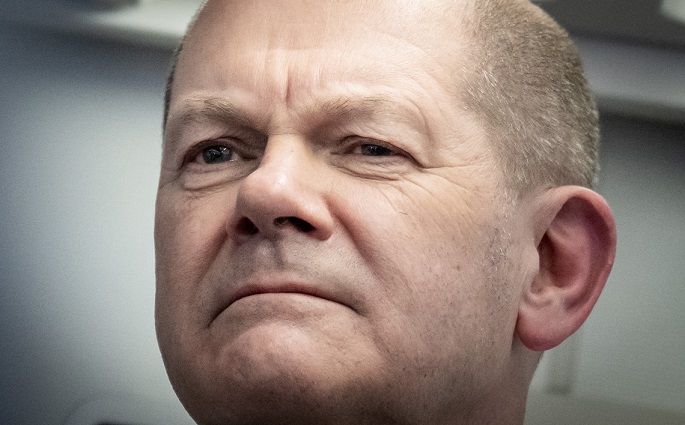Russian energy imports still essential for daily life: Scholz
Published : 08 Mar 2022, 00:08
German Chancellor Olaf Scholz has said Russian energy imports are still crucial to Europe's energy needs, as countries supporting Ukraine in the conflict with Russia discuss whether to impose an embargo on Russian fossil fuels.
"The supply of energy to Europe, for heat generation, for transport, for electricity and for industry cannot be secured at the moment in any other way," Scholz said on Monday.
Russian energy was essential for daily life, he said, and this was the reason why energy sources had been excluded from sanctions. "It was therefore a deliberate decision to allow the continued activities of German businesses with Russia related to energy supply."
At the same time Germany and other countries had agreed on sanctions that were hitting Russia hard, the Social Democrat chancellor said.
Concerns that Germany will not be able to supply enough energy for its businesses and homes due to sanctions prompted by the conflict in Ukraine have led some politicians, notably on the centre-right, to suggest that Germany rely for longer than planned on nuclear power.
Markus Söder, the conservative premier of the southern state of Bavaria, called for a multi-year extension of the lifetimes of nuclear power plants, in an interview with broadcaster ZDF on Monday.
The proposal is controversial, as both the previous and current German administrations - the current one includes the Green Party - have signed up to plans to phase out nuclear power generation by the end of this year.
"I think three to five years would be a good transition in this emergency situation to produce cheap electricity that at the same time also does not damage the climate," said Söder, a state leader who also wields considerable clout on the national political stage.
Berlin shelved a project to bring a Russian natural gas pipeline to Germany in the same week that Russia invaded Ukraine. Amid wider international calls for countries to wean themselves off Russian fossil fuels, the energy debate in Germany has been particularly fraught.
The secretary of state for economic affairs, Michael Kellner, told broadcaster ZDF that the government was looking at "all options" to prepare for next winter.
"However, I don't see how nuclear power plants can help for next winter, because they need fuel too, you can't get that easily either."
Coal-fired power plants would be kept in reserve for all eventualities, Kellner said. At the same time, the Green politician pointed out that Germany aims to phase out coal by 2030 if possible. Therefore, "we should massively accelerate the expansion of renewable energies and get out of coal earlier."
Economy Minister Robert Habeck said earlier this month that an extension to the lifetime of nuclear power plants does "not make sense."
German government spokesperson Steffen Hebestreit said on Monday that the German government is planning to limit its dependence on Russian energy sources, but this would take years or decades and was not easy to achieve in the short term.
When it came to fast-rising heating and petrol costs as a result of the conflict and other factors, Bavarian leader Söder demanded an "absolute energy price brake" as soon as possible.
"That's why VAT [value-added tax] should be reduced as much as possible, and perhaps even reduced to zero with the approval of the European Union." Such a move could save up to 20% on the price of petrol, he said.


